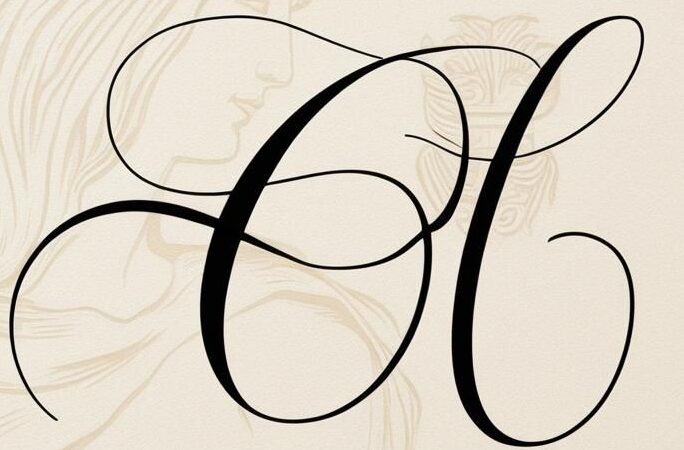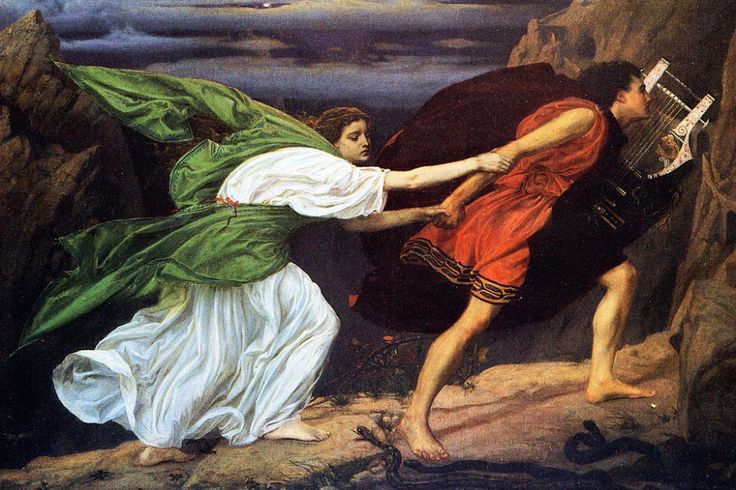The Myth of Orpheus and Eurydice: The Heart of Modern Romance Films
At the heart of many great romance films lies a timeless tale of love, loss, and the lengths one will go to for love’s sake. One of the most enduring sources of inspiration for these stories is the ancient Greek myth of Orpheus and Eurydice. This poignant myth has shaped centuries of romantic narratives, providing the emotional blueprint for everything from classic tragedies to modern love stories. But how exactly did this myth come to influence the romantic films we know and love today? Let’s dive into the myth of Orpheus and Eurydice and trace its profound impact on the world of cinema.
The Myth: A Tragic Love Story
The story of Orpheus and Eurydice is one of the most tragic and beautiful in Greek mythology. Orpheus, a gifted musician whose music could charm even the gods, falls deeply in love with Eurydice, a beautiful nymph. Their love seems perfect, but fate takes a cruel turn when Eurydice is bitten by a snake and dies. Devastated by her death, Orpheus ventures into the Underworld, determined to bring her back.
Charmed by Orpheus’s music, Hades and Persephone, the rulers of the Underworld, agree to let Eurydice return to the land of the living on one condition: Orpheus must not look back at her until they have reached the surface. In a moment of doubt and longing, Orpheus turns around just as they near the exit, and Eurydice is lost to him forever, descending back into the depths of the Underworld.
This tragic ending—the impossibility of reunion, the consequences of human error, and the eternal ache of lost love—has captivated the imagination of storytellers for centuries. The myth’s themes resonate deeply with the human experience of love, grief, and the yearning for redemption. These emotional currents have made Orpheus and Eurydice the archetypal couple in countless stories, especially in the realm of romance.
The Romance Film Connection: From Myth to Modern Cinema
Romance movies, often built around themes of love conquering all, struggle, and ultimate loss, can trace their emotional DNA back to the myth of Orpheus and Eurydice. Let’s explore some of the ways this ancient myth has directly and indirectly influenced modern romance films.
1. The Forbidden Love & Loss Paradigm
Many romance movies center around the idea of a love that defies obstacles—be they societal, familial, or, in some cases, supernatural. Like Orpheus and Eurydice, characters in these films often face an impossible choice or an external force that keeps them apart. The myth introduces the idea of “the impossible love,” where even a perfect, pure connection may not be enough to overcome the weight of fate.
Take, for example, films like The Fault in Our Stars (2014), where two young lovers, Hazel and Gus, are bound by illness—a love that can’t quite overcome the inevitable. Similarly, Titanic (1997) mirrors the tragic nature of Orpheus and Eurydice by showing a love that blooms but is ultimately doomed by circumstances beyond control.
2. The Hero’s Journey to the Underworld
Orpheus’s descent into the Underworld to reclaim his love is a literal journey into darkness and despair—a metaphor for emotional and spiritual trials. This type of journey, where the protagonist goes to extreme lengths to save or reconnect with a loved one, has become a key trope in romance films.
In Eternal Sunshine of the Spotless Mind (2004), for example, Joel (Jim Carrey) undergoes an emotional “journey” to the depths of his memories, trying to reclaim his love for Clementine (Kate Winslet). The film’s narrative structure, which jumps between memory and reality, mirrors Orpheus’s journey—just as Orpheus struggles with his memories of Eurydice, Joel struggles with the haunting memories of his lost love.
3. The Theme of Letting Go
One of the most heartbreaking parts of the Orpheus and Eurydice myth is Orpheus’s inability to truly let go of Eurydice, leading to her second and final loss. The myth presents a powerful lesson about the dangers of clinging to the past and the necessity of moving forward. In many romance films, the theme of letting go of past relationships, mistakes, or unfulfilled desires is central to the narrative.
Films like Before Sunrise (1995) and its sequels Before Sunset (2004) and Before Midnight (2013) explore the delicate balance between love, time, and change. The protagonists, Jesse and Celine, revisit the idea of whether their love can survive through different life stages. Much like Orpheus’s journey, they face the challenge of reconciling the past with the present, and ultimately, learning to accept the inevitable changes that come with time.
4. The Power of Music and Art in Love
Orpheus’s musical talent was a key part of his character—his music was so enchanting that it could move the gods, summon nature, and even sway the dead. Music, art, and creativity as expressions of love are recurring motifs in many romance films, drawing inspiration from the idea that love itself is a form of artistry.
In films like La La Land (2016), where music, dance, and the pursuit of creative dreams become a vital part of the romantic connection, the influence of Orpheus’s music is clear. Music, in many films, acts as a bridge between characters, helping them express emotions and desires that words alone cannot capture. The idea of a love that transcends words and is communicated through art, much like Orpheus’s music, is a key theme in many romance films.
5. Love’s Ultimate Sacrifice
The concept of sacrificing one’s own happiness for love is another way in which the myth of Orpheus and Eurydice reverberates through modern films. Orpheus’s journey to the Underworld and his eventual loss of Eurydice represents the ultimate sacrifice in the name of love: the willingness to face the most daunting trials and give up everything in pursuit of love’s restoration.
In The Notebook (2004), Noah (Ryan Gosling) and Allie (Rachel McAdams) embody this kind of sacrifice as they both defy social expectations, class differences, and time itself for love. They fight for each other against all odds, mirroring Orpheus’s unwavering pursuit of Eurydice.
Conclusion: The Enduring Legacy of Orpheus and Eurydice
The myth of Orpheus and Eurydice has left an indelible mark on the storytelling tradition, particularly within the realm of romance. Its themes of love, loss, longing, and the struggle to reunite with a lost soulmate echo through the ages, resurfacing in countless films that grapple with the complexities of love. Whether it’s through a literal journey into darkness, a longing for a lost connection, or the musical expression of one’s emotions, the tragic love story of Orpheus and Eurydice continues to resonate with audiences around the world.
So, the next time you watch a romance film filled with heartache, sacrifice, and the desire for a love that transcends all boundaries, you might just be witnessing the modern retelling of an ancient and immortal myth.

